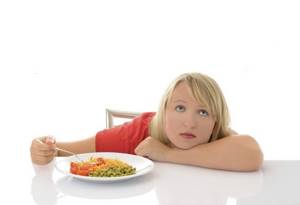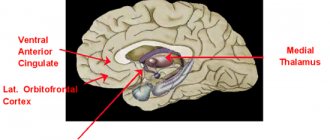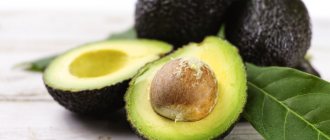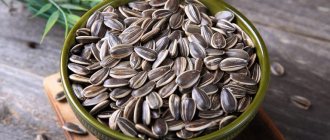How to get rid of food addiction on your own - you will learn about this in this article.
An eating disorder is any kind of disorder related to food and appearance. A strong desire to lose weight or fear of gaining weight, weight control or constant dieting, obsession with proper nutrition, overeating and, conversely, refusal to eat.
These symptoms have specific names and even diagnoses - overeating, bulimia, anorexia nervosa, and recently this includes orthorexia (obsession with nutrition). They are united under one term: eating disorder, because one disease sometimes turns into another, and sometimes they can go in parallel. They often have the same roots and causes.
And if you dig deeper into the psychological motives, all these diseases are very similar in nature. I am a psychologist and work with all types of food addiction. In this article I will tell you what the deep psychological causes of these disorders are, how bulimia, anorexia and overeating are so similar and different from a mental point of view. And also how to treat them and whether it is possible to do it yourself.
Factors causing food addiction
Food addiction occurs in women, men and children with almost equal frequency. The causes of this phenomenon are due to both psychological and physiological factors. These include:
- Deep emotional experiences in which a person seeks to “eat up” stress, to at least temporarily get rid of worries with the help of food.
- The desire to lose weight, which is expressed in strict restrictions. This method always leads to the opposite: the body, unable to withstand a strict diet, causes the person losing weight to “break down”. As a result, a person eats everything and cannot stop, despite the discomfort, stomach pain and rapid weight gain.
- Hormonal disorders. In this case, a person has insufficient production of a hormone that reduces appetite, so he is constantly drawn to food.
- Poor nutrition. If the menu is dominated by simple carbohydrates and fats, and in large quantities, then a person begins to experience almost the same dependence on food as a drug addict on toxic substances. As soon as the blood glucose level decreases, he feels the need to eat something again: this signal is given by the brain.
- Wrong attitude towards food, formed in a child in childhood. Many adults with food addiction were rewarded as children for eating all the food that was put on their plate. This line of behavior leads to the formation of a stereotype: eating a lot is good. On this basis, a psychological dependence on food is formed.
- A feeling of dissatisfaction with oneself, one's qualities, body, appearance. On the one hand, a person with complexes sees food as the only source of comfort, on the other hand, he believes that nothing can harm his blurred body, so he continues to consume food in huge quantities.
Food addiction is a real problem in modern society. Overeating leads not only to obesity, but also to numerous health problems, which significantly reduces life expectancy.
How does it manifest?
Let's look at the main signs of food addiction:
- After you feel full, you still continue to eat.
- You always eat much more food than you planned.
- As time goes by, your need for more food to achieve emotional satisfaction increases.
- Even if you set yourself the attitude “I’m not eating enough today,” soon some excuses appear (today is a bad day, etc.) and you continue to eat.
- After another extra portion of food, you feel guilty, but you continue to eat anyway.
- You start overeating even at night, when no one is looking.
- You experience withdrawal symptoms (stress, anger, depression, uncontrollable cravings) when you abstain from overeating.
Signs that determine food addiction
The main manifestations of food addiction are:
- Reluctance to share a meal with anyone. An addict often makes secret supplies of tasty treats in order to eat them unnoticed by others, in a secluded place.
- Concern about food supplies. If there is no product in the refrigerator, the “food addict” is ready to run to the store to get it, no matter what time of day it is needed.
- Sleep disturbances at night. A person gets up specifically to have a snack, even at night.
- The appearance of anxiety and panic, which is accompanied by a feeling of hunger.
- A person feels happy only after eating, and he doesn’t care what he eats - the main thing is that the very fact of eating takes place.
- Eating happens very quickly. The patient eats almost without chewing, wanting to bite off the next piece as quickly as possible.
- Healthy food does not bring satisfaction: the addict is attracted only to fatty, starchy and sweet foods.
- Thoughts about food obsessively haunt a person throughout the day, no matter what he does.

The problem is serious, because in order to get rid of addiction, it is not enough for a person to admit the fact that he suffers from a food “passion”. To cope with this condition, in most cases, the help of a psychoanalyst or psychotherapist is required.
Reasons for appearance
Susceptibility to food addiction is not related to a person's age or race. The pathology can occur in men, women, and children living in different countries. Among the probable causes of the disease are:
- Psychological, originally from childhood: rewarding children for academic success or good behavior with food, often sweets.
- Psychological, acquired in adult life: disappointments, resentments, stress, difficulties at work, low self-esteem, failures in love.
- Social – food is perceived as a way to establish contacts with other people, serves as a way to relax with friends, and improve relationships with business partners.
- Biological – hormonal imbalances.
What foods are addictive?
Pathological overeating is provoked by unhealthy foods, which cause obesity.
- In first place is fast food. French fries, hamburgers, pizza, pies and other varieties of everyone’s favorite “fast food” contain an excess amount of fat, which is why they provoke excessive attachment to them. In addition, many flavoring additives and flavorings are added to such food, which makes their taste brighter and richer.
- Products containing sugar: candy, baked goods, cookies, carbonated drinks, white bread. They cause blood glucose levels to quickly rise. When it decreases, the brain requires the entry of this substance into the body.
- Chocolate, the effect of which is similar to that of antidepressants. It is this property that contributes to the formation of dependence on this product.
- Ice cream. This product, which children love so much, contains a lot of saturated fat, as well as sugar - components that contribute to addictive food. Its regular consumption creates the risk of developing a food addiction.
Combating an excessive love of food is a complex process that requires the addict to radically reconsider his relationship with food.
Occupational therapy
In order not to aggravate the feeling of guilt and your health condition, it is better to entrust the treatment of food addiction to professionals.
People with unrelenting food cravings or underweight should see their doctors:
- psychologist;
- nutritionist;
- endocrinologist.
After the examination and clarification of the diagnosis, the doctor will help you choose the right treatment:
- For bulimia nervosa and anorexia, the emphasis is on psychotherapy. Patients are prescribed group and individual sessions with a psychologist, family and cognitive behavioral therapy. In advanced cases, antidepressants and antiemetics are prescribed.
- Working with a nutritionist and a psychiatrist can help you get rid of overeating. Specialists adjust the diet and help increase self-esteem through sports, professional achievements, and an exciting hobby.
- Taste addiction is treated by eliminating from the diet all foods that cause feelings of euphoria and pleasure. To get rid of the withdrawal syndrome, the patient is recommended to attend psychotherapy sessions.
How to get rid of food addiction?
To break out of the vicious circle, which consists of bouts of overeating, feelings of guilt for this and repeated eating experiences, an integrated approach is required. A person who wants to overcome food addiction must not only adjust their diet, but also change their lifestyle.
Catering
An addict should remember: you cannot sharply limit yourself in food. Strict diets along with exhausting exercise will only lead to a new breakdown and uncontrolled eating of everything in the refrigerator. You should use these rules:
- Keep a food diary. This must be done honestly, entering absolutely all the data about how much of what was eaten and at what time. This will allow you to recreate the real picture of nutrition and analyze what can and should be excluded from the diet. Of course, these must be all unhealthy products that worsen both health and appearance.
- Systematize your meals. It is necessary to adhere to a routine in which a person eats three times a day (basic meals), making snacks (no more than three) between breakfast, lunch and dinner.
- You should not stock up on food, especially unhealthy food. It is better to get rid of those stocks that are already available, without sparing either the products or the money spent on them, because health is more important.

- To make meals that seem bland and unusual without the “harm” more enjoyable, you should add natural spices (not concentrates) to the dishes.
- The diet should be varied, but most of it should be foods containing a large amount of fiber. These are raw vegetables, legumes, greens. Fiber promotes slower absorption of glucose into the blood, which reduces the desire to eat something forbidden.
To “trick” the stomach, nutritionists recommend drinking more water. This way you can reduce the feeling of hunger.
Reassessment of lifestyle
Often, a sedentary lifestyle and lack of hobbies, work, and interest activities contribute to the formation of food addiction, because a person has nothing else to concentrate his attention on. That is why, in order to get rid of psychological dependence on food, you definitely need to reconsider your lifestyle so that food ceases to occupy the main place in it.
First of all, you need to find something to do that will allow you to take your mind off constant thoughts about food. This could be drawing, dancing, playing sports, mastering a skill.
It's also worth motivating yourself. For example, if a person has children, he should try to overcome addiction for their sake, so that they do not go through similar suffering at a conscious age.
Anyone who suffers from food addiction should work on adjusting their diet . Overeating throughout the day leads to sleep disturbances, because the body is busy processing excess food intake even at night. A few days during which a person eats according to a schedule will help him “join” a normal rhythm. During the first few days after starting to eat normally, addicts feel tired and go to bed earlier.
Adequate sleep, which lasts at least 8 hours, reduces the risk of overeating and obesity.
It’s better not to think about food before going to bed, because at the last moment you can still find the strength to go to the refrigerator for a portion of a delicious product.
You should not give in to the temptation of drinking tea together, because in a warm company you just want to eat something harmful, in addition to tea or coffee.

Methods to combat psychological addiction to food
Sometimes a person is not able to cope with food addiction on his own, despite all the efforts he puts into it. In this case, he needs the help of a psychoanalyst who, through conversations with the addict, establishes the reasons for such an intense attachment to food.
The specialist provides full support to the patient, resorting to such specific methods as problem discussion, training on the awareness of emotions, and role-playing games.
The psychotherapist also explains to the addict’s family and friends the need for support and participation - this makes the hope of ridding the person of excessive cravings for food more likely. If you do not support the addict, he will very quickly lose faith in himself, and this is the main factor due to which patients with any type of addiction cannot overcome harmful cravings.
Food addiction is not an exaggeration, but a real problem. It is necessary to fight it, because overeating affects not only appearance, but also the condition and functioning of internal organs. An integrated approach to correcting the condition will allow a person to return to their usual way of life and derive joy not from food, but from what is happening around them.
Methods of self-medication
To overcome food addiction on your own, psychologists advise following four steps:
- Motivation. A person must admit that there is a problem and find incentives to solve it. For example, set a goal to lose weight, improve your health, or gain respect among colleagues or friends.
- Self-realization. Food addiction often occurs due to a lack of positive emotions, so it is important to find something interesting to do. Try to remember what you liked before the addiction appeared, start playing sports, sign up for dancing or a hobby group.
- Preparing the right diet. Try to exclude fried, fatty, sweet and foods that have taste preferences from your diet. Start eating more fresh vegetables, fruits, and whole grain cereals. Eat in small portions.
- Work on your own self-esteem. Learn to correctly perceive yourself and the world around you, love your body and do not try to seek solace in food.

We work with the body

To stop thinking about food and lose weight, you first need to work with the physiological basis of obsessive thoughts.
Calming the stomach
The main problem is how to calm the rumbling of a distended stomach, which in diet mode is almost always either empty or half-empty. After all, it is because of it that a feeling of hunger arises, which is incredibly difficult to cope with.
In fact, this problem is completely solvable. You just need to reconsider your dietary intake and make appropriate adjustments to it. The main task of this stage is to make the stomach work after eating for as long as possible. While it is functioning, it does not send signals of hunger. How to do it?
- Switch to split meals (5 or 6 meals a day) so that the stomach does not remain empty for too long.
- Create a meal plan and strictly follow it. This way you will accustom your body to a regular supply of food, reduce its stress, and it will stop making you think about the forbidden.
- Include lean protein meals in meals. They are dietary (will help you lose weight) and take a long time to digest. Kefir, fish, chicken, seafood should be present in the diet daily.
- Eat slow carbohydrates. It’s not for nothing that they are called that, because they take a long time to digest and give a feeling of fullness for a long time. This is primarily fiber, which is abundant in cereals and vegetables.
- Drink plenty of water between meals. It fills the stomach and blocks thoughts of hunger for a while.
- Instead of snacks, drinking juices, tea, milkshakes is low-calorie and at the same time satisfying.
If the stomach stops “complaining” about hunger, those losing weight will think about food much less often.
Filling the energy deficit
But there is another physiological reason for the occurrence of such thoughts - energy deficiency. The daily calorie bar is lowered on any diet. Hence - weakness, feeling of fatigue, decreased performance, drowsiness. And the body begins to demand to replenish energy reserves, making you dream about forbidden foods. How to deal with this problem?
Carbons are responsible for energy. Therefore, they must be included in the diet. But in order not to violate the principles of dietary nutrition, they should be slow and there should not be a lot of them. Here is their list:
- legumes;
- bitter chocolate;
- mushrooms;
- greenery;
- cereals;
- vegetables;
- nuts;
- unsweetened fruits: kiwi, green apples, citrus fruits;
- seeds;
- whole grain bread;
- unsweetened berries: cranberries, lingonberries, sea buckthorn, chokeberry.
Want to stop thinking about food? Start with physiology - and obsessive thoughts about hamburgers and fries will torment you much less often.











